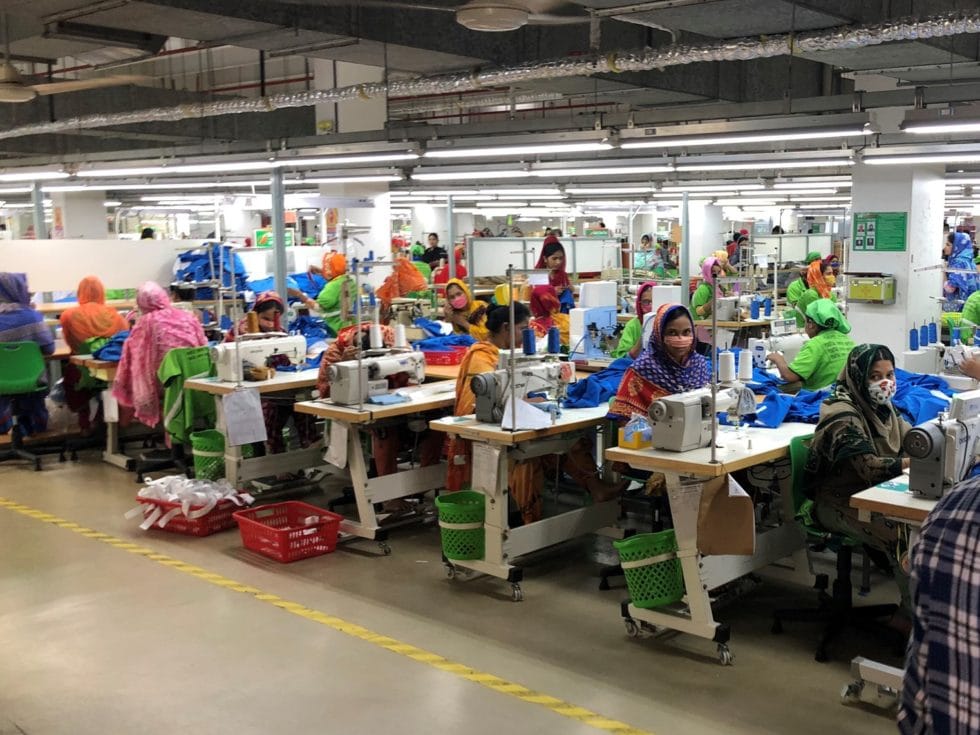New report shows the early impacts of the Corona Virus on Bangladesh Apparel Supply Chains
14-05-20

Seven years ago this month, more than 1,100 garment workers in Bangladesh were killed when the Rana Plaza complex collapsed on top of them. Today, the Bangladesh apparel industry and its 4+ million workers face a new crisis: coronavirus. Obvious health issues aside, the impacts of the global pandemic on the industry and its workers are potentially catastrophic for the industry and the wider society alike. The report
“Early impacts of the Corona Virus on Bangladesh Apparel Supply Chains” by the researchers behind the Danida supported project “The Regulation of International Supply Chains (RISC)” project outlines some of the early issues and developments relating to the impact of coronavirus in Bangladesh’s apparel industry and supply chain.
The report has two primary aims. First, it seeks to aggregate key information about developments and issues arising in Bangladesh’s apparel industry as a result of the coronavirus. Accounts and reporting are widespread, and the report brings together data and information from both international and local sources. It draws on media articles, academic research, watchdog reports, governmental policies and industry accounts to create a comprehensive overview of the issues and reporting. Second, and more significantly, it looks behind the numbers and accounts to provide analysis of, and reflections on, the broader issues and challenges at play. Key questions arising from this are detailed in the final section. The content here is reflective of a close collaboration of researchers from both the Global North and Bangladesh, thereby providing a balanced perspective.
However, the report is not entirely comprehensive. In its quest for speed, it does not yet provide an account of the trade union movement, updates on trade policies, or other important developments that affect the industry. These and other topics will be addressed in future reports.
This report is a product of the RISC project, which seeks to shed light on how social sustainability issues – like working conditions and occupational health and safety – are governed in the Bangladesh RMG industry. In particular, it examines how different entities – like brands, suppliers and governments – understand and take action on their responsibilities. Thus, RISC researchers endeavour to draw on their knowledge and experience in the industry to provide insight into the impacts of coronavirus given that many of the major issues arising are core to our areas of expertise: ethical trade, supply chain management, corporate social responsibility, social sustainability, governance, and the Bangladesh RMG industry.
RISC brings together researchers Copenhagen Business School, BRAC University Bangladesh, Tufts University, and professionals from the Danish Ethical Trading Initiative.
RISC is an academic research project funded by the Ministry of Foreign Affairs Denmark and administered by the Danida Fellowship Centre: The Regulation of International Supply Chains (RISC): Lessons from the Governance of Occupational Health and Safety
Go back to our stories